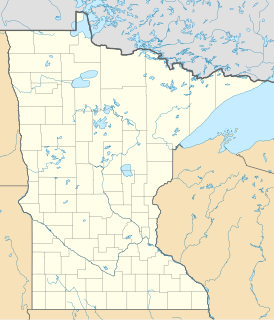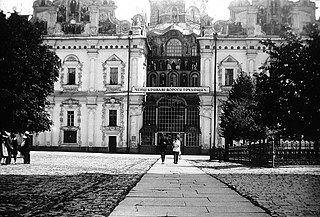 W
WThe 2014 Sweden mosques arson attacks were a series of incidents all of which were initially believed to be arson attacks on three mosques in Sweden, that took place during one week at the end of 2014. In the third incident, in addition to being struck by a Molotov cocktail, the mosque at Uppsala was vandalized with racist graffiti. The first incident, the only one to have caused injuries, was however later found by police investigations to have been an accident in the mosque kitchen caused by an overheated deep-fryer.
 W
WThe Anti-balaka is an alliance of militia groups based in the Central African Republic in the early 21st century said to be composed primarily of Christians. However, some church leaders have contested the claimed exclusively Christian character of such groups. The Tony Blair Faith Foundation and journalist Andrew Katz have noted that animists also participate in Anti-balaka groups.
 W
WThe Cave of the Patriarchs massacre, also known as the Ibrahimi Mosque massacre or Hebron massacre, was a shooting massacre carried out by American-Israeli Baruch Goldstein. Goldstein was a member of the far-right Israeli Kach movement. On 25 February 1994, during the overlapping religious holidays of both Jewish Purim and Muslim Ramadan, Goldstein opened fire on a large number of Palestinian Muslims who had gathered to pray inside the Ibrahimi Mosque at the Cave of the Patriarchs compound in Hebron, West Bank. The attack left 29 people dead, several as young as twelve, and 125 wounded. Goldstein was overpowered, disarmed and then beaten to death by survivors.
 W
WThe Chetniks, formally the Chetnik Detachments of the Yugoslav Army, and also the Yugoslav Army in the Homeland and the Ravna Gora Movement, was a Yugoslav royalist and Serbian nationalist movement and guerrilla force in Axis-occupied Yugoslavia. Although it was not a homogeneous movement, it was led by Draža Mihailović. While it was anti-Axis in its long-term goals and engaged in marginal resistance activities for limited periods, it also engaged in tactical or selective collaboration with the occupying forces for almost all of the war. The Chetnik movement adopted a policy of collaboration with regard to the Axis, and engaged in cooperation to one degree or another by establishing modus vivendi or operating as "legalised" auxiliary forces under Axis control. Over a period of time, and in different parts of the country, the movement was progressively drawn into collaboration agreements: first with the puppet Government of National Salvation in the German-occupied territory of Serbia, then with the Italians in occupied Dalmatia and Montenegro, with some of the Ustaše forces in northern Bosnia, and, after the Italian capitulation in September 1943, with the Germans directly.
 W
WTwo consecutive mass shootings occurred at mosques in a terrorist attack in Christchurch, New Zealand, during Friday Prayer on 15 March 2019. The attack, carried out by a single gunman who entered both mosques, began at the Al Noor Mosque in the suburb of Riccarton at 1:40 pm and continued at Linwood Islamic Centre at 1:52 pm. He killed 51 people and injured 40.
 W
WThe 1985 Gujarat riots began in February 1985 and lasted till August, in the Indian state of Gujarat. Most of the rioting occurred in the city of Ahmedabad; some other cities, including the state capital of Gandhinagar, were also affected. Between 220 and 275 people were killed in the violence, while several thousands of others were injured, and tens of thousands were displaced. The riots also caused widespread property damage.
 W
WThe Inn Din massacre was a mass execution of Rohingyas by the Myanmar Army and armed Rakhine locals in the village of Inn Din, in Rakhine State, Myanmar on 2 September 2017. The victims were accused of being members of the Arakan Rohingya Salvation Army (ARSA) by authorities. An investigation by Myanmar's military concluded on 10 January 2018 that there was indeed a mass execution of Rohingyas in Inn Din, marking the first instance where the military admitted to extrajudicial killings during their "clearance operations" in the region.
 W
WThe Inquisition, in historical ecclesiastical terminology also referred to as the "Holy Inquisition", was a group of institutions within the Catholic Church whose aim was to combat heresy. Torture and violence were used by the Inquisition for eliciting confessions from heretics. The Inquisition started in 12th-century France to combat religious dissent, particularly among the Cathars and the Waldensians. The inquisitorial courts from this time until the mid-15th century are together known as the Medieval Inquisition. Other groups investigated during the Medieval Inquisition, which primarily took place in France and Italy, included the Spiritual Franciscans, the Hussites and the Beguines. Beginning in the 1250s, inquisitors were generally chosen from members of the Dominican Order, replacing the earlier practice of using local clergy as judges.
 W
WIslam in Albania (1945–1991) covers a period of time when the Albanian Labor Party came to power under Enver Hoxha and exercised almost total control over the Albanian people. The communist government sought to radically overhaul Albanian society by realigning social, cultural and religious loyalties to the communist party through Albanian Nationalism in the pursuit of achieving unitary Albanian identity.
 W
WJai Shri Ram is a Hindi expression, translating as "Glory to Lord Rama" or "Victory to Lord Rama". The proclamation has been used as an informal greeting or as a symbol of adhering to Hindu faith or for projection of varied faith-centered emotions, by Hindus in recent past.
 W
WThe Karantina massacre took place on January 18, 1976, early in the Lebanese Civil War. Karantina was a predominantly Palestinian Muslim slum district in mostly Christian East Beirut, controlled by forces of the Palestine Liberation Organization (PLO), and inhabited by Kurds, Syrians, Armenians, and Palestinians. The fighting and subsequent killings also involved an old quarantine area near the port and nearby Maslakh quarter.
 W
WThe Ku Klux Klan, commonly shortened to the KKK or the Klan, is an American white supremacist hate group whose primary targets are African Americans, as well as Jews, immigrants, leftists, homosexuals, Muslims and Catholics. The Klan has existed in three distinct eras at different points in time during the history of the United States. Each has advocated extremist reactionary positions such as white nationalism, anti-immigration and – especially in later iterations – Nordicism, antisemitism, prohibition, right-wing populism, anti-communism, homophobia, Islamophobia, anti-atheism, and anti-Catholicism. Historically, the first Klan used terrorism – both physical assault and murder – against politically active blacks and their allies in the South in the late 1860s, until it was suppressed around 1872. All three movements have called for the "purification" of American society and all are considered "right-wing extremist" organizations. In each era, membership was secret and estimates of the total were highly exaggerated by both friends and enemies.
 W
WThe Lasithi massacres was a massacre of Muslim civilians in 1897. They took place in the Lasithi region of eastern Crete. Over 850 or around 1,000 people were murdered.
 W
WThe Manili massacre refers to the mass murder of 70 Moro Muslims, including women and children, committed in a mosque in Manili, Carmen, North Cotabato, Philippines on June 19, 1971. The Muslim residents of the town had gathered in their mosque to participate in a supposed peace talk with Christian groups when a group of armed men dressed in uniforms similar to those worn by members of the Philippine Constabulary opened fire on them.
 W
WThe 2016 Minneapolis shooting took place on June 29, 2016 in Minneapolis, Minnesota when a man named Anthony Sawina shot at five Somali-Americans, wounding two of them. Witnesses later recounted that Sawina shouted anti-Muslim expletives and claimed he was "going to kill [them] all." The attack was condemned by civil rights groups as part of a larger rise of Islamophobia in the United States leading up the 2016 presidential election.
 W
WOn March 23, 2019, several attacks by gunmen killed a reported 160 Fulani herders in central Mali. The violence came in the aftermath of the Malian government cracking down on Islamic terror cells in the country. Two villages, Ogossagou and Welingara, were particularly affected.
 W
WThe Malisbong Masjid Massacre, also called the Palimbang Massacre, was the mass murder of Muslim Moros by units of the Philippine Military on September 24, 1974, in the coastal village of Malisbong in Palimbang, Sultan Kudarat, Mindanao. Accounts compiled by the Moro Women's Center in General Santos City state that 1,500 male Moros aged 11–70 were killed inside a mosque, 3,000 women and children aged 9–60 were detained – with the women being raped – and that 300 houses were razed by the government forces. The massacre occurred two years after Ferdinand Marcos declared martial law in September 1972.
 W
WThe Quebec City mosque shooting was a mass shooting on the evening of January 29, 2017, at the Islamic Cultural Centre of Quebec City, a mosque in the Sainte-Foy neighbourhood of Quebec City, Canada. Six worshippers were killed and nineteen others injured when a man opened fire just before 8:00 pm, shortly after the end of evening prayers. Fifty-three people were reported present at the time of the shooting.
 W
WQuébec Identitaire is a Quebec based protest group espousing that people that follow Islam should leave Canada. In November 2014, the group vandalized several mosques in Quebec and left paper leaflets with a written message in Quebec French "Islam hors de chez moi".
 W
WThe Rohingya genocide is a series of ongoing persecutions by the Myanmar government of the Rohingya people. The genocide has consisted of two phases to date: the first occurred from October 2016 to January 2017 and the second has been occurring since August 2017. The crisis forced over a million Rohingya to flee to other countries. Most fled to Bangladesh, while others escaped to India, Thailand, Malaysia, and other parts of South and Southeast Asia.
 W
WThe Sabra and Shatila massacre was the killing of between 460 and 3,500 civilians, mostly Palestinians and Lebanese Shiites, by a militia close to the Kataeb Party, a predominantly Christian Lebanese right-wing party, in the Sabra neighborhood and the adjacent Shatila refugee camp in Beirut, Lebanon. From approximately 18:00 on 16 September to 08:00 on 18 September 1982, a widespread massacre was carried out by the militia in plain sight of the Israeli Defence Forces (IDF), its ally. The Phalanges were ordered by the IDF to clear Palestine Liberation Organization (PLO) fighters out of Sabra and Shatila, as part of the IDF maneuvering into West Beirut. The IDF received reports of some of the Phalange atrocities in Sabra and Shatila but did not take any action to prevent or stop the massacre.
 W
WThe Second Italo-Senussi War, also referred to as the Pacification of Libya, was a long, bloody conflict that occurred during the Italian colonization of Libya between Italian military forces and indigenous rebels associated with the Senussi Order. The war lasted from 1923 until 1932, when the principal Senussi leader, Omar al-Mukhtar, was captured and executed.
 W
WAnti-Shi'ism is hatred of, prejudice, discrimination, persecution and violence against Shia Muslims because of their religious beliefs, traditions and cultural heritage. The term was first defined by Shia Rights Watch in 2011, but it has been used in informal research and written in scholarly articles for decades.
 W
WThe Madhe Sahaba Agitation was a civil disobedience movement launched by Deobandi Muslims of Lucknow in the first half of the twentieth century to counter the commemoration of the tragedy of Karbala during Muharram. It resulted in a widespread Shia-Sunni conflict between the years 1906 - 1909 and turned violent in 1936 - 1939. The conflict spread to other parts of British India.
 W
WThe Tribunal of the Holy Office of the Inquisition, commonly known as the Spanish Inquisition, was established in 1478 by Catholic Monarchs Ferdinand II of Aragon and Isabella I of Castile. It was intended to maintain Catholic orthodoxy in their kingdoms and to replace the Medieval Inquisition, which was under Papal control. It became the most substantive of the three different manifestations of the wider Catholic Inquisition along with the Roman Inquisition and Portuguese Inquisition. The "Spanish Inquisition" may be defined broadly, operating in Spain and in all Spanish colonies and territories, which included the Canary Islands, the Kingdom of Naples, and all Spanish possessions in North, Central, and South America. According to modern estimates, around 150,000 were prosecuted for various offenses during the three-century duration of the Spanish Inquisition, out of which between 3,000 and 5,000 were executed.
 W
WAnti-Sunnism is hatred of, prejudice, discrimination, persecution and violence against Sunni Muslims in the response to the Orthodoxy of Sunni Islam.
 W
WThe USSR anti-religious campaign of 1928–1941 was a new phase of anti-religious campaign in the Soviet Union following the anti-religious campaign of 1921–1928. The campaign began in 1929, with the drafting of new legislation that severely prohibited religious activities and called for an education process on religion in order to further disseminate atheism and materialist philosophy. This had been preceded in 1928 at the fifteenth party congress, where Joseph Stalin criticized the party for failure to produce more active and persuasive anti-religious propaganda. This new phase coincided with the beginning of the mass collectivization of agriculture and the nationalization of the few remaining private enterprises.
 W
WThe Xinjiang re-education camps, officially called Vocational Education and Training Centers by the Government of China, are internment camps operated by the Xinjiang Uygur Autonomous Region government and its CCP committee. Human Rights Watch claims that they have been used to indoctrinate Uyghurs and other Muslims since 2017 as part of a "people's war on terror," a policy announced in 2014. The camps are part of the allegations of human rights abuse related to the Uyghur genocide.
 W
WThe Zürich Islamic center shooting refers to the mass shooting of several people in an Islamic center in Central Zürich that occurred on 19 December 2016. The assailant was later identified as a 24-year-old Swiss man of Ghanaian descent living in Uster District. While the motive is still under investigation, the Islamic Central Council of Switzerland and others claim the attacker was motivated by anti-Muslim sentiment.